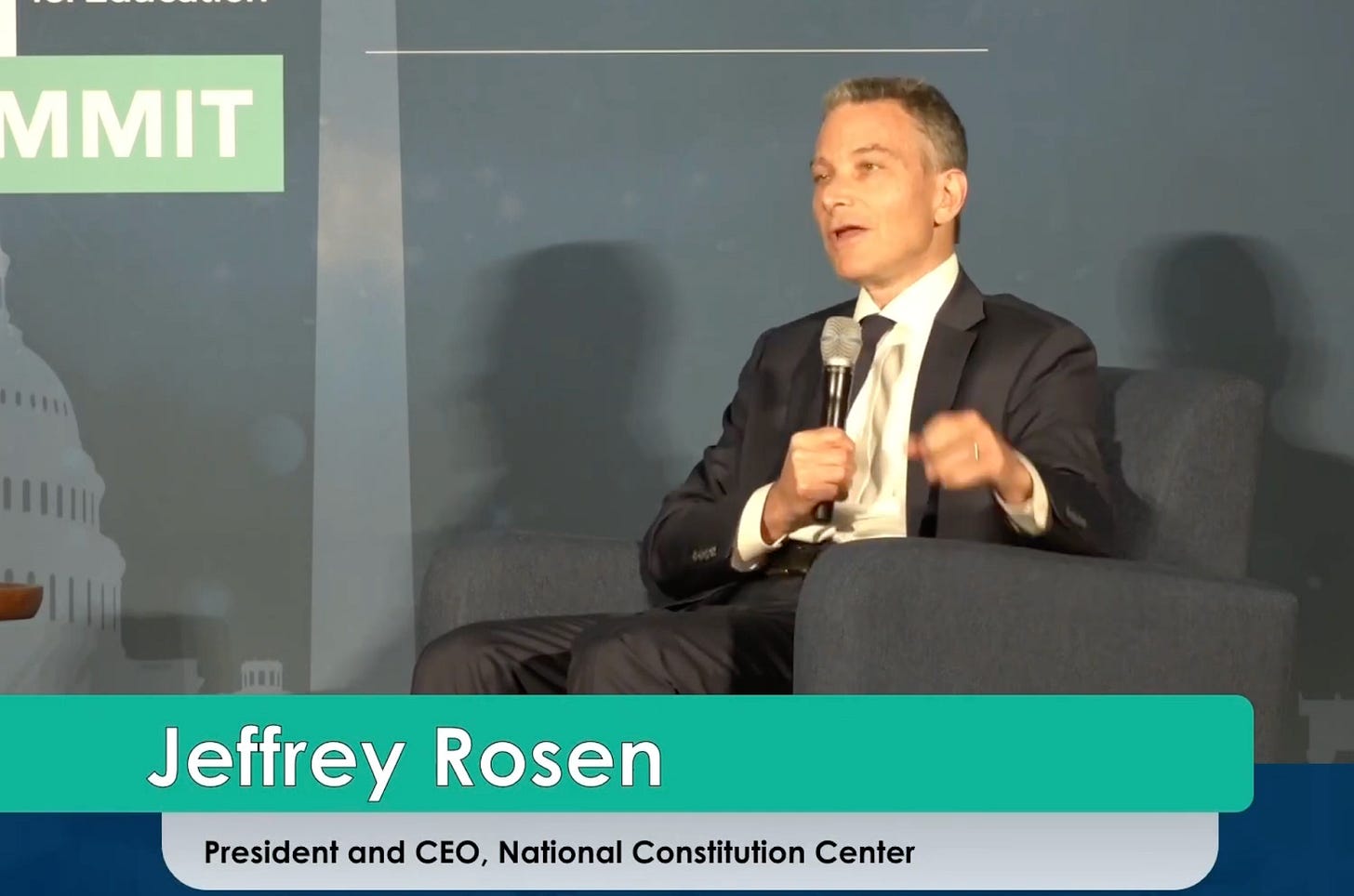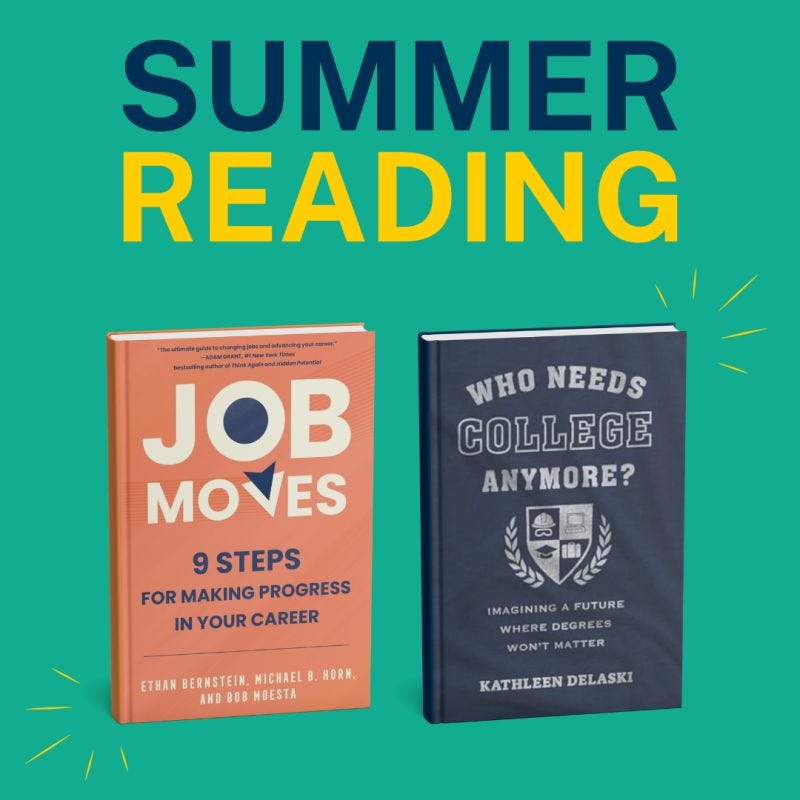100 Years of Parent Power
How one Supreme Court case gave families control over their children’s education — and why it still matters today.
We’ve Come a Long Way, Baby.
Happy June! It’s not only the month of grand finales and goodbyes to the structures and activities most associated with the “school year,” but it’s the 100th Anniversary of the recognition by the U.S. Supreme Court of the right of parents, not the state, to control the education of their youth.
Pierce v. Society of Sisters was a groundbreaking decision that overturned an Oregon law forbidding parents to send their children to private and religious schools and mandating their public school attendance. It was also warning shot to the rest of the nation not to create laws managing children.
The famous line “The child is not the mere creature of the state” comes from the majority opinion in Pierce v. Society of Sisters (1925), written by Justice James C. McReynolds.
This phrase is one of the most famous in American constitutional law related to parental rights. In full context, the Court wrote:
“The child is not the mere creature of the state; those who nurture him and direct his destiny have the right, coupled with the high duty, to recognize and prepare him for additional obligations.”
This powerful sentence underscores the Court’s affirmation that parents—not the state—have the primary role in directing a child's upbringing and education. It has since been cited in many cases defending parental authority in educational and religious matters.
It rings true today in everything from education freedom to schools attempting to force parents to accept everything from Ritalin to behavior modifications to gender treatments. This 100th anniversary is a fitting reminder of what this nation is all about - Individual liberty and the pursuit of happiness.
What Should We Teach About the Pursuit of Happiness?
How often do you hear — or say — that kids today seem self-centered? It’s always refreshing to see young people devoted to making their lives and their communities better, but the rise of social media, cell phones and mental health issues stemming from both keep them inwardly focussed and thinking that happiness is about how they feel, rather than who they are.
Jeff Rosen, constitutional scholar and CEO of the National Constitution Center, studied the founding documents and explores this deeper meaning in his book, The Pursuit of Happiness.
“The Pursuit of Happiness meant not feeling good but being good, not the pursuit of immediate pleasure but the pursuit of long-term virtue.
“‘Without virtue, happiness cannot be,’” he said, quoting Cicero.
“What I learned from all these books is that for most of human history, happiness meant self-mastery, self-improvement, character improvement, being your best self. They put it in terms of impulse control; using your unreasonable passions — like anger, jealousy and fear and converting them to calm, tranquility, prudence, temperance, courage and justice — the classical virtues — so you could be your best self and serve others.
“It totally changed in the 1960s when happiness came to be understood as feeling good — not being good.”
Now there’s an understatement!
Check out the full 🎧 conversation with Dr. Rosen from earlier this year at the Power of Innovation Summit. It’s a perfect starting point for a summer school conversation for young people — or those who guide them!
Speaking of Summer…
If you're starting to build your summer reading list, here are a few titles to add to your book stack — ones that offer sharp insight, fresh perspective, and a window into the future of education and workforce development.
- Kathleen deLaski’s “Who Needs College (Anymore)?”
This book has generated buzz — and for good reason. Kathleen takes a fresh look at the evolving value of a traditional college degree. It’s smart, provocative, and full of innovative thinking. Get it on Amazon.
- Michael Horn’s “Job Moves”
From the innovation guru of the Clayton Christensen Institute, Michael’s book explores how education shapes — and shifts — our career trajectories. He brings clarity and practicality to some of the most complex challenges in learning and work. More here.
And while you’re curating this year’s book stack… here's one to add to your wishlist. “School’s Out” by Mickey Revenaugh has found a publishing house and will be coming out in 2026! A true pioneer in online education, Mickey co-founded one of the first virtual learning companies and continues to be a bold voice shaping the future of how our kids learn. I’m honored to have contributed to her thinking as she crafted this book, and cannot wait for its release next year! It’s going to be a must-read. Read more from Mickey here.
Have yourself a summer of reading that informs, inspires, and maybe even challenges how you think about what’s next in education!
Why Do You Think We Call it Parent Power?
Next week, you’ll learn which states are truly working to fulfill the opportunity that Pierce v. Society of Sisters — and several subsequent cases — established for parents: the power to direct their children’s education.
But what is power without money or control? If your local public school — even if it once served you, your children, or your grandchildren well — is still the only option the state will fund, regardless of its fit for another child or its ability to deliver results, are we really any farther along than we were 100 years ago?
You might be shocked to learn — when the 2025 Parent Power! Index is unveiled next week — that most states barely earn a grade you’d consider passing. So, who’s getting it right? How do states compare? And what do you need to know to unlock real parent power in the pursuit of virtuous happiness?
It’s all about to unfold.
Keep your eye on ParentPowerIndex.edreform.com — coming next week.
We’ve been producing this flagship report for more than 20 years, using rigorous research and objective data to assess how well each state respects and fosters true parental control in education. As always, the results tell a powerful story.
We hope you enjoy — and act on — what you see.
I’ll be back next week with highlights and reflections on this and more.
Wishing you plenty of summer’s warmth - Jeanne




